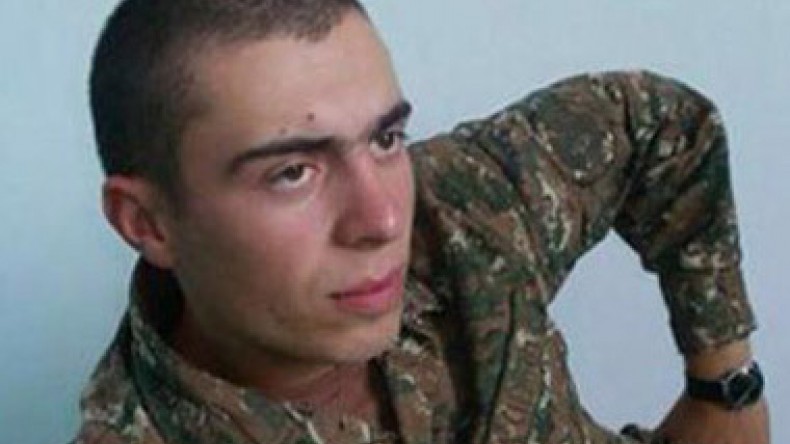
Co-Chairs’ Parity Destructive as Azeris Kill Another Soldier
Below we present an article by Asbarez Editor Ara Khachatourian.
What do foreign ministers Eduard Nalbandian and Elmar Mammadyarov aim to accomplish on Friday in Paris, when the body of the latest martyr is barely cold in his rightful grave at Yerablur National Cemetery?
How can these leaders—mediated by the OSCE Minsk Group Co-Chairmen—discuss a peaceful resolution to the Karabakh conflict, when at every turning point the Azeri Army aims to thwart any progress, each time claiming the lives of Armenian soldiers and/or civilians?
How will Azeri President Ilham Aliyev’s repeated threats to take over all of present-day Armenia, which he characterizes as historic Azerbaijan, come into play in these talks?
How does the continued and destructive parity regarding the tense situation on the Azerbaijan-Karabakh border being articulated by the mediators—most recently by the US Minsk Group co-chairman—supposed to advanced what most see as stalled peace talks?
More important, how do all the aforementioned factors justify the loss of another young life who forsaking everything else advanced to repel a two-pronged attack and in the process saved the lives of his comrades and possibly countless others?
The official line from Yerevan continues to be finger-pointing at Azerbaijan for derailing the talks. The official line from Baku is an escalation of its military attacks on Armenian positions. Meanwhile the so-called mediators seem to ignore the mounting casualties and continue to depict the realities as a two-sided issue, when clearly attacks by Azerbaijan have become commonplace ahead of scheduled talks or during visits to the region by foreign officials.
This week’s headline-grabbing death of Karabakh Armed Forces junior sergeant Armen Hovhannisyan highlights the explosive state of the so-called peace talks with the Armenian side bearing the brunt of the violence with loss of lives and the birth of new heroes in this 26-year-old struggle.
While we honor our heroes and elevate their ultimate sacrifice in the defense of our homeland, the international community—especially the United States, one of the three Minsk Group co-chairing countries—continues its tone deaf policy and fails to unequivocally condemn the unilateral attacks launched by Azerbaijan.
When Baku threatened to down civilian aircraft, the US urged both sides to quell the violence. When the US, Russia and France urged the withdrawal of snipers from borders, Azerbaijan refused and the reaction was the same. When Azeri forces attacked several positions in Armenia and Karabakh ahead of Secretary Hillary Clinton’s visit to the region, she barely blinked. And the list goes on…
At 20, Armen Hovhannesyan had four months left in his tour of active duty. He had written his parents that he was looking forward to returning home and “may God be with you until I come back.”
So, how will the death of Armen Hovhannisyan play into Friday’s talks? Will we get the usual boilerplates from the parties to the talks that suggest things were discussed without further elaboration? When another Armenian soldier dies, however, we will realize, once again, that not much was accomplished in these diplomatic meetings.
After Hovhannisyan’s death, the Armenian National Committee of America reiterated its long standing demand that the US withdraw all military aid to Azerbaijan.
“Azerbaijan’s latest fatal cross-border attack underscores—painfully and profoundly—the ongoing human cost of the international community’s failure to either meaningfully confront or constrain Baku’s march toward a renewed Caucasus war,” commented ANCA Executive Director Aram Hamparian. “At the very least, this should serve as a wake-up call to Congress here in Washington to cut-off all military aid to Azerbaijan.”
While it is imperative for decisive condemnation of Azerbaijan, there is no real sign that the international community’s approach will abate any time soon. This will only encourage Azerbaijan to continue its military aggression and further turn the region into a powder keg.
Amid this diplomatic rhetoric and machinations, which bolster violence on the border, Armen Hovhannisyan was not able to keep his promise to “come home.”
Newsfeed
Videos






























